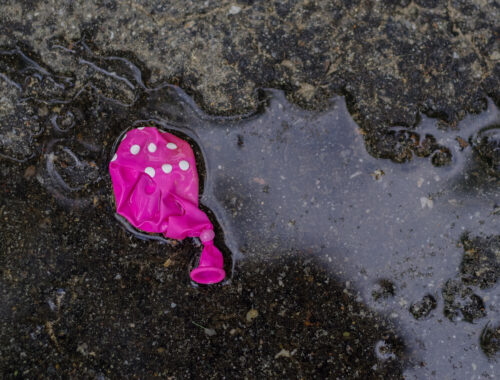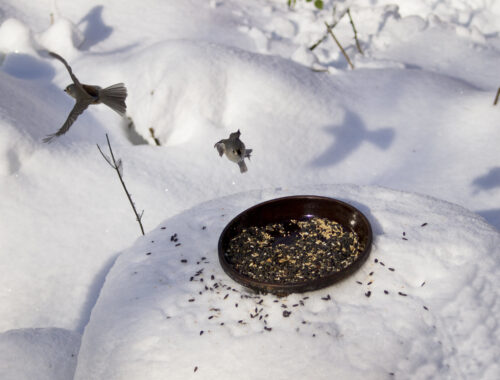
Year After Year
Mother’s Day. I hate it.
No matter how much I lower my expectations, no matter how hard my husband and kids try to get me just the right thing, to be thoughtful for a few hours, or to bake something delicious, the day never fails to depress me.
Yesterday was a sunny but windy, lovely Maine day, and Dennis and I immensely enjoyed the privilege of babysitting our eight-month-old grandson for two hours. We had a splendid time playing with his toys, holding his hands as he walked all over his house, sharing a snack, reading books, and appreciating glimpses of the everyday, familiar world as a novice sees it. That, however, had nothing to do with Mother’s Day; our babysitting stint came about because of a scheduled photo shoot for our son and his fiancé.
I thought I’d get though Mother’s Day just fine this year. I thought I had adjusted my consciousness enough to be able to take it in stride. I even sincerely found it funny that my husband was pestering me about getting out of bed first and making the coffee so he wouldn’t have to. It became even funnier when I laughed and said, “Yep. You’re just doing this because it’s Mother’s Day.” That’s when the (real, not fake) shocked face momentarily passed over his visage and he said, “Oh. Shit. I forgot.” So, I laughed harder (and it was real, not fake), got out of bed, and made the coffee. I then grabbed my morning books and basket filled with pens, journals, and notebooks, brought them to the chaise section of the couch where I make my morning nest, and sat down to read the next few pages in Sexual Personae and take more notes on The Rape of the Mind so I can remove all the page flags from it and put it back on the shelf. Maybe about an hour later, Dennis descended the stairs to pour his second cup of coffee and wandered into the family room, where I was already sipping my second cup and trying to focus on Ensouling Language. I shared with him something significant that I read in Paglia’s book, and he gave me his take on it. I said, “No, you don’t understand,” and we discussed further, but I found myself getting frustrated and upset with his take. That’s when I knew that I’d not get through Mother’s Day unscathed.
Since we started dealing with emotional issues affecting everyone in the house, our marriage has changed for the better. Dennis and I now talk about everything with few worries like: “How will he take this?” “Is she going to get mad if I say this?” “I know he’ll defend himself and tell me I’m wrong if I bring this up.” “It won’t be good enough for her.” So, here we were, with my emotions coming to the fore now, as we discussed the classical notion of the Great Chain of Being and how that impacts the way humans relate to one another and the natural world: I maintaining that it leads to the rape of nature because “man is higher” and he asserting that problems need solving or some such (he’ll likely clarify in the comments section). So, a little while later, I let him and the kids know that I still hate Mother’s Day, but it’s not their fault, and I do appreciate their efforts as much as I can.
All in all, the day was nice, the cake Sam baked was delicious, my daughter called, and I received some lovely gifts. That should have been the end of the story for another year, but as I waited for the coffee to finish percolating today (Dennis made it), I checked in with the world and found remnants of Mother’s Day online, specifically a response from a friend to a tweet about my dissatisfaction with Mother’s Day that I had sent into the ether yesterday. Her feelings echoed mine to a certain extent, and I then tried to better articulate the problem. I think I managed, but it took two attempts/tweets. First: “Yes. Great expectations, no matter how you try to lower them.” Unsatisfied, I thought more and transmitted this: “No. It’s the gaslighting. Men and their institutions say things like ‘Motherhood is noble and important’ but then create constant internal conflict for kids’ moms by putting their wants/status ahead of children’s needs. Oh, but one day a year: ‘You’re important, honey.’ It’s yet another case of words not matching actions/everyday experience.”
I think back to “a friend” (we were never terribly close) I had back in Colorado when my first two kids were babies and toddlers. In fact, my husband met her when she was pregnant with her first and I was pregnant with our first. Dennis was walking our dog, she was walking hers, the two of them met and our dog tried to take an ear of the other dog back home with her. After paying the vet bill, Dennis and I had a set of new parents to share the ups and downs of parenting with once in a while. I’m going to call the woman Kay and her husband Ernie. I had quit my job to stay home with Luke, but Kay was putting her baby in daycare (at a house where a woman earned money caring for five or six children that were not her own). I don’t remember Kay saying a ton about the situation, but one day, when both of our sons were around seven or eight months old, she told me about a co-worker who had put her first baby, at six weeks old, in the same daycare Kay’s son “attended.” The baby died his first day there. The caregiver had given him a bottle, laid him down near the Christmas tree, because he seemed to like the lights, and left the room. When she came back ten minutes later, the baby was not breathing. You can imagine my shock. All these years later, I have little doubt that the vaccines the baby had received at his last “well baby visit” were the cause of his death, but back then I simply asked Kay if she had considered quitting her job and staying home with her son. “No, no,” she replied. “He’s fine. He loves it there.” (How often do you hear a parent say anything like, “My child is miserable at daycare/kindergarten”?)
Almost two years later, after not seeing Kay for quite some time, I ran into her again. This time, she told me that her son had nearly died. He had suddenly gotten incredibly sick, and they almost lost him to Type-1 diabetes. A two-year-old! I was shocked. My father was a diabetic, and my cousin had developed diabetes at age 13, so I knew it was a big deal. At the time, of course, I had no idea that in another ten years the baby I was expecting then would nearly die of diabetic ketoacidosis and her younger brother would then develop the condition about ten years after that. But Kay: here she was telling me about her son’s life-changing diagnosis and all I could think was, she must have quit her job so she can be home with him, so I asked, “Did you quit your job?” “No,” she replied. “We taught the daycare provider everything she needs to know. She gives him his snacks and insulin shots.” I expressed my astonishment, and she said something like, “I can’t quit. Ernie and I love to camp on the weekends with the baby, but all we have is a pop-up camper and Ernie wants to buy a nice RV.” (Ernie was probably earning a very decent salary as a software engineer at a large corporation that, apparently, thought the world revolved around it—nudge, nudge, wink, wink.)
Now, I’m sure many of you are thinking that I’m judging and that I don’t understand the entire situation and maybe she wanted to work. I will not argue with you. I will simply ask you to ask yourselves a few questions: “Does Ernie, who probably buys his wife nice Mother’s Day gifts and tells her on that day that she’s wonderful, truly value her as a mother to their son?” “Does he wholeheartedly believe that motherhood is a sacred, all-important vocation?” “Does a two-year-old care about camping on the weekends or does he just want to be with the two people who are supposed to love him and probably claim they’d sacrifice anything for him?”




